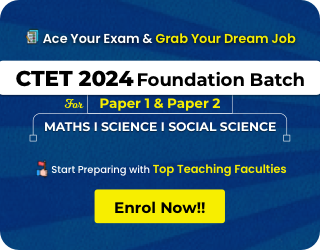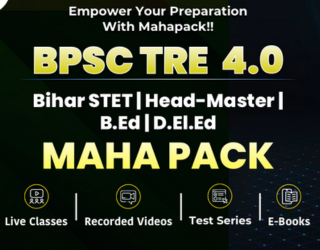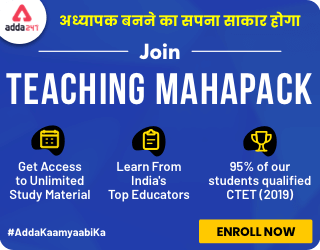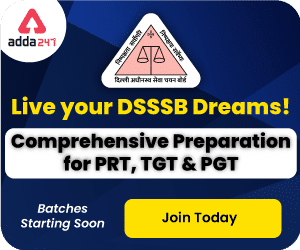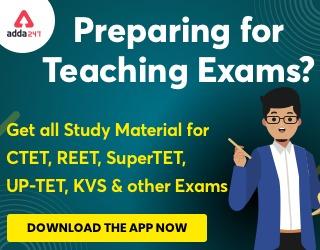Table of Contents
The Karnataka TET Syllabus 2024 is released by the Education Department of Karnataka on the official website along with the official notification. Reading and understanding the nuances of the KARTET Syllabus 2024 is essential for the preparation of candidates for the KARTET Exam 2024.
Karnataka TET is conducted in two phases: one for primary classes (class I to V) and the second for upper primary classes (class VI to VIII). Candidates must go through the following article for detailed information on the KARTET Syllabus 2024.
Karnataka TET Syllabus 2024
The knowledge about the Karnataka TET Syllabus will help the candidates to plan their timetable and strategy most effectively. Interested Candidates may download the Karnataka TET Syllabus from the given below link. The KARTET Syllabus 2024 will give the candidates an in-depth understanding of the exam pattern, marks distribution, extent of content, and so on.
KARTET Syllabus 2024
The candidate must be aware of everything about KARTET Syllabus 2024 and we have provided the details in the below table. Check out the basic information on Karnataka TET Exam 2024 as mentioned in the following table.
| Karnataka TET Syllabus 2024 | |
| Organization Name | School Education Karnataka |
| Exam Name | Karnataka Teachers Eligibility Test (KARTET) |
| Exam Type | Eligibility Test |
| Article | Syllabus & Exam Pattern |
| Karnataka Exam Date | Notified Later |
| Job Location | Karnataka |
| Karnataka Official Site | www.schooleducation.kar.nic.in |
Karnataka TET Syllabus 2024
Karnataka TET Syllabus and Exam Pattern have all the topics asked in the examination with weightage. In this post, we share the combined structure of the Karnataka TET Syllabus and Exam Pattern for better preparation. Karnataka TET Syllabus comprises topics from sections of Karnataka TET Paper 1 and Paper 2 – Child Development and Pedagogy, Language I, Language II, Mathematics, Science, Environmental Science, and Social Studies.
KARTET Exam Pattern
The Karnataka TET 2024 Exam is held offline in pen and paper mode to determine the candidate’s eligibility for Primary and Secondary Teachers in Karnataka schools. Check out the Karnataka TET Exam Pattern to understand its nuances in a better way.
| KARTET Exam Pattern | |
| KARTET | Karnataka Teacher Eligibility Test |
| Paper -I | for classes I to V |
| Paper-II | for classes VI to VIII |
| Total Mark | 150 (For Each Paper) |
| Total Question | 150 (For Each Paper) |
| Total Time | 2 hr 30 min(For Each Paper) |
| Negative Marking | No |
| Medium of question paper | English, Kannada, Urdu, Hindi, Tamil, Telugu, and Marathi. |
Note: A person who intends to teach for both levels (classes I to V and classes VI to VIII) will have to appear in both papers (Paper I and Paper II).
KARTET Paper I (for Classes I to V) Primary Stage Syllabus
|
Karnataka TET Marks Distribution Paper I
|
|||
|---|---|---|---|
| S.No. | Subjects |
No. of Questions
|
Marks
|
|
1
|
Child Development and Pedagogy
|
30
|
30
|
|
2
|
Language I (compulsory)
|
30
|
30
|
|
3
|
Language II (compulsory)
|
30
|
30
|
|
4
|
Mathematics
|
30
|
30
|
|
5
|
Environmental Studies
|
30
|
30
|
|
6
|
Social studies (For visually impaired candidates instead of mathematics and EVS)
|
60
|
60
|
|
Total
|
150
|
150
|
|
KARTET For Paper-II (for Classes VI to VIII) Elementary Stage Syllabus
|
Karnataka TET Marks Distribution Paper II
|
|||
|---|---|---|---|
| S.No. | Subjects |
No. of Questions
|
Marks
|
|
1
|
Child Development and Pedagogy
|
30
|
30
|
|
2
|
Language I (compulsory)
|
30
|
30
|
|
3
|
Language II (compulsory)
|
30
|
30
|
|
4
|
Subject Concerned (Mathematics & Science Or Social Studies)
|
60
|
60
|
|
Total
|
150
|
150
|
|
KARTET Syllabus 2024
KARTET 2024 comprises 2 papers. Paper-I will be for a person who intends to be a teacher for classes I to V. Paper-II will be for a person who intends to be a teacher for classes VI to VIII. The syllabus for both papers has been given below in detail.
KARTET Paper I Syllabus
KARTET Child Development and Pedagogy Syllabus
- Child development: Concept of development and its relationship with learning, Principles of the development of children, Influence of Heredity & Environment.
- Socialization processes: Social world & children (Teacher, Parents, Peers)
- Concepts of child-centred and progressive education: Piaget, Kohlberg and Vygotsky, constructs and critical perspectives., Critical perspective of the construct of Intelligence, Multi-Dimensional Intelligence, Language and thought.
- Gender as a social construct: gender roles, gender – bias and educational practice, Individual differences among learners, understanding differences based on diversity of language, caste, gender, community, religion, etc.,
- The distinction between Assessment for learning and assessment of learning: School-Based Assessment, Continuous and comprehensive Evaluation., perspective and practice, Formulating appropriate questions for assessing readiness levels of learners, for enhancing learning and critical thinking in the classroom, and for assessing learner achievement.
- Concept of Inclusive education and understanding children with special needs: Addressing learners from diverse backgrounds including disadvantaged and deprived Addressing the needs of children with learning difficulties, ‘impairment’ etc., addressing the Talented, Creative, Specially abled Learners
- Learning and Pedagogy: How children think and learn; how and why children ‘fail’ to achieve success in school performance.
- Basic processes of teaching and learning: children’s strategies of learning, learning as a social activity and social context of learning, Child as a problem solver and a ‘scientific investigator’.
- Alternative conceptions of learning in children: understanding children’s ‘errors’ as significant steps in the learning process. Cognition & Emotions, Motivation, and learning, Factors contributing to learning – personal & environmental
KARTET Language I Syllabus
- Language Comprehension Reading unseen passages: Answering the question based on the given unseen passage. (Prose, Drama, or Poetry.)
- Pedagogy of Language Development: Learning and Acquisition, Principles of Language Teaching, Role of listening and speaking, the function of language and how children use it as a tool. A critical perspective on the role of grammar in learning a language for communicating ideas verbally and in written form. Challenges of teaching language in a diverse classroom and Language Skills.
- Teaching-learning materials: Textbook, multi-media materials, multilingual resource of the classroom, Remedial Teaching
KARTET Language II Syllabus
- Language Comprehension Reading unseen passages: Answering the question based on the given unseen passage. (Prose, Drama, or Poetry.)
- Pedagogy of Language Development: Learning and Acquisition, Principles of Language Teaching, Role of listening and speaking, the function of language and how children use it as a tool. A critical perspective on the role of grammar in learning a language for communicating ideas verbally and in written form. Challenges of teaching language in a diverse classroom and Language Skills.
- Teaching-learning materials: Textbook, multi-media materials, multilingual resource of the classroom, Remedial Teaching.
KARTET Mathematics Syllabus
- Geometrical figures & the knowledge of space
- 3 – D Geometrical figures
- Numbers
- Fractions
- Mathematical operations on numbers and algebraic expressions
- Measurements – Weight, time, and volume
- Data Handling & Measures of central tendency
- Ratio and proportion
- Mathematics in daily life
- Lines & angles
- Polygons
- Basic algebra – Linear equations & Identities
KARTET Pedagogical issues Syllabus
Nature of Mathematics/Logical thinking; understanding children’s thinking and reasoning patterns and strategies of making meaning and learning, Place of Mathematics in Curriculum, Language of Mathematics, Community Mathematics, Evaluation through formal and informal methods, Problems of Teaching, Error analysis and related aspects of learning and teaching, Diagnostic and Remedial Teaching.
KARTET Environmental Science Syllabus
- Our Environment: Major components of the environment, types of ecosystem, life diversity and its features, food chain, and nature balancing factors, Food web, ecological Pyramids, Plant and animal species, factors of Biodensity, Tropic levels, Types of pollution, reasons – effects – remedial measures, greenhouse effect, greenhouse gasses, sustainable development and its maintenance, waste management measures. Environment movements (Related to state and national level), Important Environment activists, state and national award-winning literature, and writers related to the environment, major environmental phenomena, and types of ecological conservation.
- Living world: Life processes, classification of organisms. How do organisms reproduce? Cell, Tissues, Organs, and organs system.
- Sources of Energy: Solar Energy, Wind Energy, Tidal Energy, Geothermal Energy, Biodegradable wastes, non-biodegradable wastes, and Chemicals in our daily life.
- Human Health and Hygiene: Carbohydrates: Types of Monomers, lipids, proteins, Vitamins, Minerals, Deficiencies.
- Natural Phenomena: Motion, Force, Gravitation, Newton’s laws of motion, distance-speed graphs.
- How do things work: Electricity: Definitions of important terminologies, SI units, Numerical.
KARTET Environmental Science Pedagogy Syllabus
- Important methods of teaching
- Current teaching-learning interaction.
- Main features of NCF – 2005
- Features and uses of practical methods.
- Values are to be integrated with the classroom learning process.
- Evaluation methods, existing evaluation methods, and maintenance of records.
KARTET Social Studies (For Visually impaired instead of Maths and EVS) Syllabus
Concepts, content, and pedagogy of social studies pertaining to classes 6 to 8 and difficulty level up to secondary level (class 10).
Content
- History: When, Where and How, The Earliest Societies, The First Cities, Early States, New Ideas, The First Empire, Contacts with Distant lands, Political Developments, Culture and Science, New Kings and Kingdoms, Sultans of Delhi, Architecture, Creation of an Empire, Social Change, Regional Cultures, The Establishment of Company Power, Rural Life and Society, Colonialism and Tribal Societies, The Revolt of 1857 – 58, Women and reform, Challenging the Caste System, The Nationalist Movement, India After independence.
- Geography: Geography as a social study and as a science, Planet – Earth in the solar system, Globe, Environment in its totality: natural and human environment, Air, Water, Human-Environment – settlement, transport and communication, Resources – Types – Natural and Human, Agriculture.
- Social and Political Life: Diversity, Government, Local Government, Making a Living, Democracy, State Government, Understanding Media, Unpacking Gender, The Constitution, Parliamentary Government, The Judiciary, Social Justice and the Marginalized. Pedagogical issues: Concept & Nature of Social Science/Social Studies, Class Room Processes, activities, and Discourse, Developing Critical Thinking, Enquiry/Empirical Evidence, Problems of Teaching Social Science/Social Studies, Sources – Primary & Secondary, Project Work, Evaluation.
KARTET Paper II Syllabus
KARTET Child Development and Pedagogy Syllabus
- Child development: Concept of development and its relationship with learning, Principles of the development of children, Influence of Heredity & Environment.
- Socialization processes: Social world & children (Teacher, Parents, Peers)
- Concepts of child-centered and progressive education: Piaget, Kohlberg and Vygotsky, constructs and critical perspectives., Critical perspective of the construct of Intelligence, Multi-Dimensional Intelligence, Language & Thought.
- Gender as a social construct: gender roles, gender – bias and educational practice, Individual differences among learners, understanding differences based on diversity of language, caste, gender, community, religion, etc.
- The distinction between Assessment for learning and assessment of learning: School-Based Assessment, Continuous & Comprehensive Evaluation., perspective and practice, Formulating appropriate questions for assessing readiness levels of learners, for enhancing learning and critical thinking in the classroom, and for assessing learner achievement.
- Concept of Inclusive education and understanding children with special needs addressing learners from diverse backgrounds including disadvantaged and deprived Addressing the needs of children with learning difficulties, ‘impairment’ etc., addressing the Talented, Creative, Specially abled Learners.
- Learning and Pedagogy: How children think and learn; how and why children ‘fail’ to achieve success in school performance. Basic processes of teaching and learning, children’s strategies of learning, learning as a social activity and social context of learning, Child as a problem solver and a ‘scientific investigator’. Alternative conceptions of learning in children, understanding children’s ‘errors’ as significant steps in the learning process. Cognition & Emotions, Motivation, and learning, Factors contributing to learning – personal & environmental
KARTET Language I Syllabus
- Language Comprehension Reading unseen passages – Answering the question based on the given unseen passage. (Prose, Drama, or Poetry.)
- Pedagogy of Language Development: Learning and Acquisition, Principles of Language Teaching, Role of listening and speaking, the function of language and how children use it as a tool. A critical perspective on the role of grammar in learning a language for communicating ideas verbally and in written form. Challenges of teaching language in a diverse classroom and Language Skills.
- Teaching-learning materials: Textbook, multi-media materials, multilingual resource of the classroom, Remedial Teaching
KARTET Language – II Syllabus
- Comprehension: Two unseen prose passages (discursive or literary or narrative or scientific) with questions on comprehension, grammar, and Verbal Ability.
- Pedagogy of Language Development: Learning and acquisition, Principles of Language Teaching, Role of listening and speaking; function of language and how children use it as a tool, Critical perspective on the role of grammar in learning a language for communicating ideas verbally and in written form, Challenges of teaching language in a diverse classroom; language difficulties, errors and disorders, Challenges of teaching language in a diverse classroom; language difficulties, errors, and disorders, Evaluating language comprehension and proficiency: speaking, listening, reading and writing, Teaching – learning materials: Textbook, multimedia materials, multilingual resource of the classroom, Remedial Teaching.
KARTET Mathematics Syllabus
Content
- Arithmatic Progression
- Number system
- Statistics & Probability
- Trigonometry
- Coordinate geometry
- Identifies
- Pair of linear equations in two variables
- Quadratic equations
- Polynomials
- Mensuration
- Triangles
- Quadrilaterals
- Circles
- Area related to circles
Pedagogical issues: Nature of Mathematics/Logical thinking, Place of Mathematics in Curriculum, Language of Mathematics, Community Mathematics, Evaluation, Remedial Teaching, Problem of Teaching
KARTET Science Syllabus
KARTET Physics Syllabus
- Motion: Definitions, Types of motion, Law & Equations of motion.Laws and numerals.
- Gravitation: Law, numerical.
- How do things work :
- Light – Reflection- Refraction
- Lens – Concave, Convex
- Mirror – Concave, Convex – Images formed in Spherical mirrors and lens
- Electricity and Electric Circuits – Definitions, units, derivations.
- Resistors – Numericals, circuit diagrams.
- Magnetism – Definition, Various laws, numerical, AC, DC motors, and generators.
- Natural phenomenon: Eye, Eye defects. : TIR, Dispersion.
KARTET Chemistry Syllabus
- Materials & Materials in our daily life – Metals, non-metals. Physical and chemical properties
- Acids, Bases, and Salts: Physical and chemical properties.
- Atoms and Molecules: Formulae, Masses, electronic configuration.
- Polymers: Artificial, natural, uses.
- Natural resources: Types and applications.
- Chemicals in our daily life: Soaps, detergents, Sweeteners, medicines, Drugs.
KARTET Biology Syllabus
- Food – Definition of food, Food, and its importance, Food chain, Food web, Food pyramid
- Food and its sources – Plant source and animal source implications.
- Food and its constituents :
Energy-giving food – Carbohydrates & lipids
Bodybuilding food – Proteins
Body protectors – Vitamins & minerals, Roughage, and water.
- Living World: Microorganisms, Plant kingdom, Animal kingdom
- Animal kingdom: Vertebrates, Invertebrates
- Cell: Plant cell and Animal cell – Tissues, organ, organ system.
Pedagogical issues: Nature & Structure of Sciences, Natural Science/Aims & Objectives, Understanding & Appreciating Science, Approaches/Integrated Approach, Observation/Experiment/Discovery (Method of Science), Innovation, Text Material/Aids, Evaluation. – problems and remedial teaching.
KARTET Social Studies/Social Sciences Syllabus
Content :
- History: When, Where and How, The Earliest Societies, The First Cities, Early States, New Ideas, The First Empire, Contacts with Distant lands, Political Developments, Culture and Science, New Kings and Kingdoms, Sultans of Delhi, Architecture, Creation of an Empire, Social Change, Regional Cultures, The Establishment of Company Power, Rural Life and Society, Colonialism and Tribal Societies, The Revolt of 1857 – 58, Women and reform, Challenging the Caste System, The Nationalist Movement, India After independence.
- Geography: Geography as a social study and as a science, Planet – Earth in the solar system, Globe, Environment in its totality: natural and human environment, Air, Water, Human-Environment – settlement, transport and communication, Resources – Types – Natural and Human, Agriculture.
- Social and Political Life: Diversity, Government, Local Government, Making a Living, Democracy, State Government, Understanding Media, Unpacking Gender, The Constitution, Parliamentary Government, The Judiciary, Social Justice and the Marginalized.
Pedagogical issues: Concept & Nature of Social Science/Social Studies, Class Room Processes, activities, and discourse, Developing Critical thinking, Enquiry/Empirical Evidence, Problems of teaching Social Science/Social Studies, Sources – Primary & Secondary, Project Work, Current methods of Evaluation.
Karnataka TET Syllabus PDF
The syllabus for KARTET 2024 has been available in PDF format for both papers. Candidates can download the KARTET 2024 Syllabus PDF through given below link :

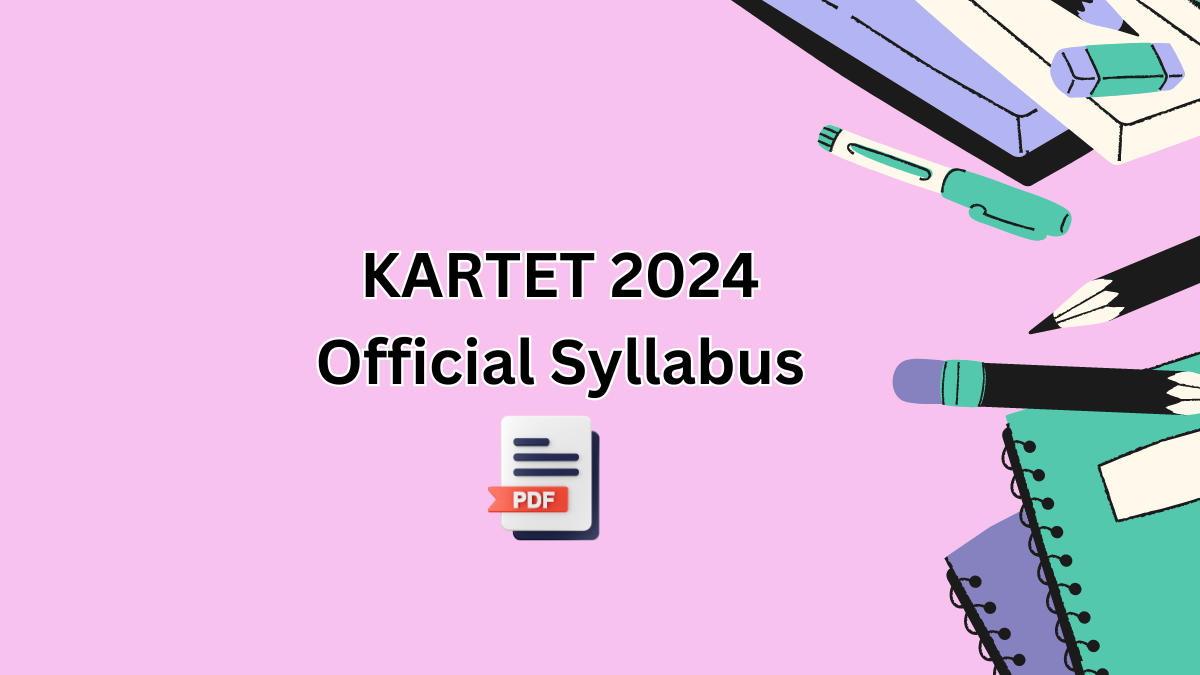
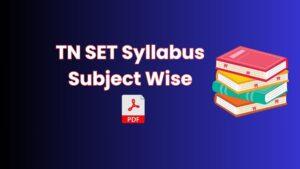 TNSET Syllabus 2024 & Exam Pattern, ...
TNSET Syllabus 2024 & Exam Pattern, ...
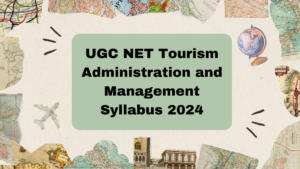 UGC NET Tourism Administration and Manag...
UGC NET Tourism Administration and Manag...
 Tamil Nadu TRB Assistant Professor Sylla...
Tamil Nadu TRB Assistant Professor Sylla...

